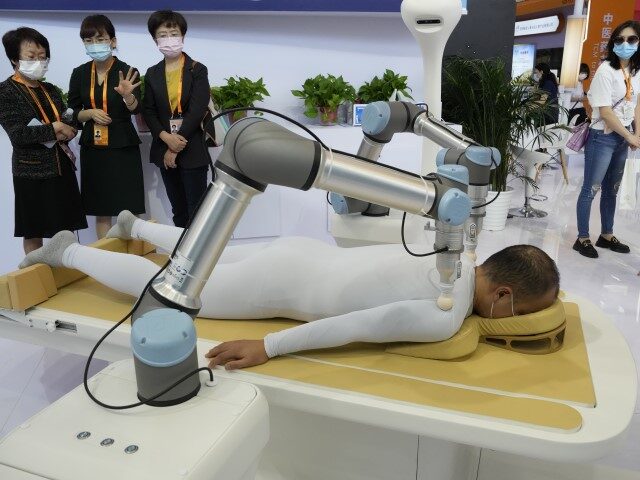The Beijing Municipal Health Commission drafted regulations on Monday that would “strictly prohibit” using artificial intelligence (A.I.) systems to produce medical prescriptions.
The rules would restrict A.I. in various other ways, with the overall goal of ensuring A.I. “shall not replace the doctors to provide diagnosis and treatment services.”
The South China Morning Post (SCMP) noted that these regulations, if adopted in full, would “mark the first time a local government explicitly limits the use of generative A.I. in healthcare.”
The Chinese central government has promulgated some regulations on A.I. and, in fact, has yet to allow anything comparable to the famed ChatGPT system for consumers.
On the other hand, the Chinese Communist Party has often expressed a desire to take the leadership position on worldwide A.I. research, boosted by China’s lack of concern for privacy rights and its mania for accumulating gigantic databases, often without the consent or awareness of the people it mines for information.
China paradoxically sits at the intersection of ruthless “techno-utilitarianism” and deep anxiety that A.I. disruptions could rattle its weakening economy and make high unemployment even worse.
The Chinese government is also eager to ensure that artificial minds are firmly shackled to Communist ideology. Piles of regulations have been written by the central government to require that all A.I. chatbots “adhere to core socialist values” and must never express an idea that “incites subversion of state power and the overthrow of the socialist system.” The list of things that Chinese A.I. must never, ever say is growing very long indeed.
The SCMP noted that China does seem to want A.I. to be useful as a healthcare resource, especially for online health services. Creating an online “diagnosis and treatment supervision platform” is a high priority for the same Beijing municipal health commission that was eager to forbid A.I. from prescribing medicine.
A few years ago, China was eagerly exploring the possibility of A.I. stepping in to alleviate the unequal distribution of medical resources and streamline an inefficient national healthcare system; today, Chinese officials seem nervous about A.I. putting doctors out of work.

COMMENTS
Please let us know if you're having issues with commenting.